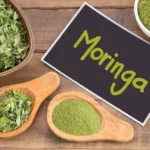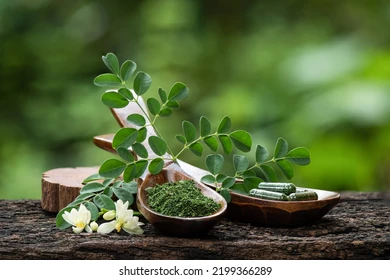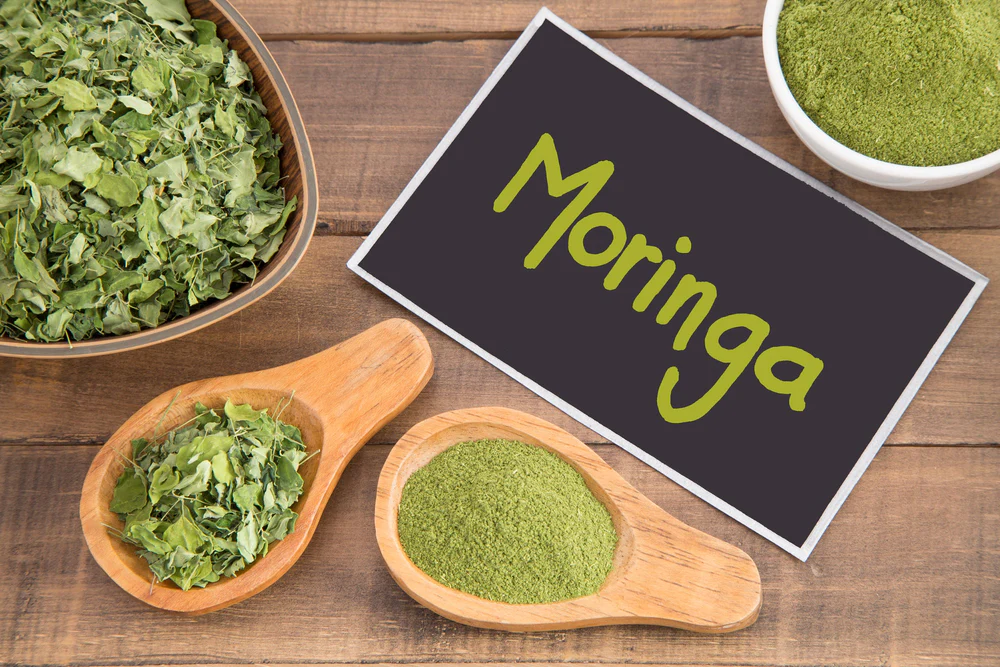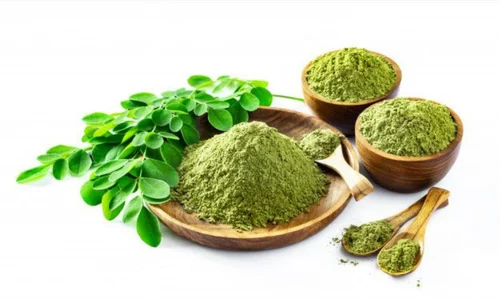The “Moringa Miracle” is quickly becoming a staple in the morning routines of health enthusiasts around the globe, offering a nutritious and convenient way to jumpstart your day in today’s bustling world. Recognized for its remarkable health benefits, Moringa is celebrated as a natural powerhouse that can significantly enhance your lifestyle. This article will delve into the extraordinary properties of Moringa and demonstrate how making it a part of your morning ritual can revolutionize your overall well-being.
Introduction
The “Moringa Miracle” is a term that encapsulates the incredible potential of the Moringa tree, also known as Moringa oleifera. This tree, native to parts of Africa and Asia, has been recognized for its exceptional nutritional value and numerous health benefits. Let’s delve deeper into the world of Moringa and uncover the reasons why it’s becoming a staple in morning routines worldwide.
Table of Contents
What Is Moringa?
Moringa, scientifically known as Moringa oleifera, is a remarkable plant that has garnered attention worldwide for its exceptional nutritional value and numerous health benefits. It is often referred to by various names, including the “drumstick tree,” “miracle tree,” and “horseradish tree.” Native to regions of Africa and Asia, Moringa has a rich history of traditional usage dating back centuries.
This extraordinary tree is renowned for its various edible parts, each of which contributes to its reputation as a nutritional powerhouse. Let’s delve deeper into what makes Moringa so remarkable:
- Leaves: Moringa leaves are perhaps the most well-known and widely consumed part of the tree. They are a rich source of essential vitamins and minerals, including vitamin A, vitamin C, calcium, iron, and potassium. Notably, Moringa leaves are considered a complete protein source, containing all nine essential amino acids. This makes them an excellent dietary choice for vegetarians and vegans.
- Pods: The long, slender pods of the Moringa tree are also edible. They resemble green beans and are commonly used in various culinary dishes. These pods are a good source of dietary fiber, making them valuable for digestive health.
- Seeds: Moringa seeds have gained attention for their potential medicinal and industrial uses. They are a source of healthy fats, including oleic acid, and are used in the production of Moringa oil, which is used for cooking and skincare. Additionally, Moringa seeds are being investigated for their water-purifying properties.
- Flowers: Moringa flowers, while less commonly consumed, are also edible and are used in some culinary traditions. They are known for their unique flavor and are often used in salads or as garnishes.
- Roots: The roots of the Moringa tree have a horseradish-like flavor and are occasionally used in cooking. However, they are generally less popular than other parts of the plant.
Beyond its nutritional value, Moringa has a rich historical background, with references in ancient Ayurvedic texts and traditional medicine systems. In modern times, it continues to be a vital component of traditional medicine practices in many cultures.
The health benefits of Moringa are diverse and include boosting energy levels, supporting the immune system, promoting healthy skin, aiding digestion, and potentially assisting with weight management. With its comprehensive nutrient profile, Moringa is often regarded as nature’s very own multivitamin.
Incorporating Moringa into your daily routine can be a valuable step towards a healthier lifestyle. Whether you choose to enjoy Moringa leaves in your morning smoothie, brew Moringa tea, or explore other culinary possibilities, this “Moringa Miracle” has the potential to transform your well-being in a natural and holistic way. However, it’s important to use Moringa in moderation and consult with a healthcare professional if you have specific health concerns or dietary questions.
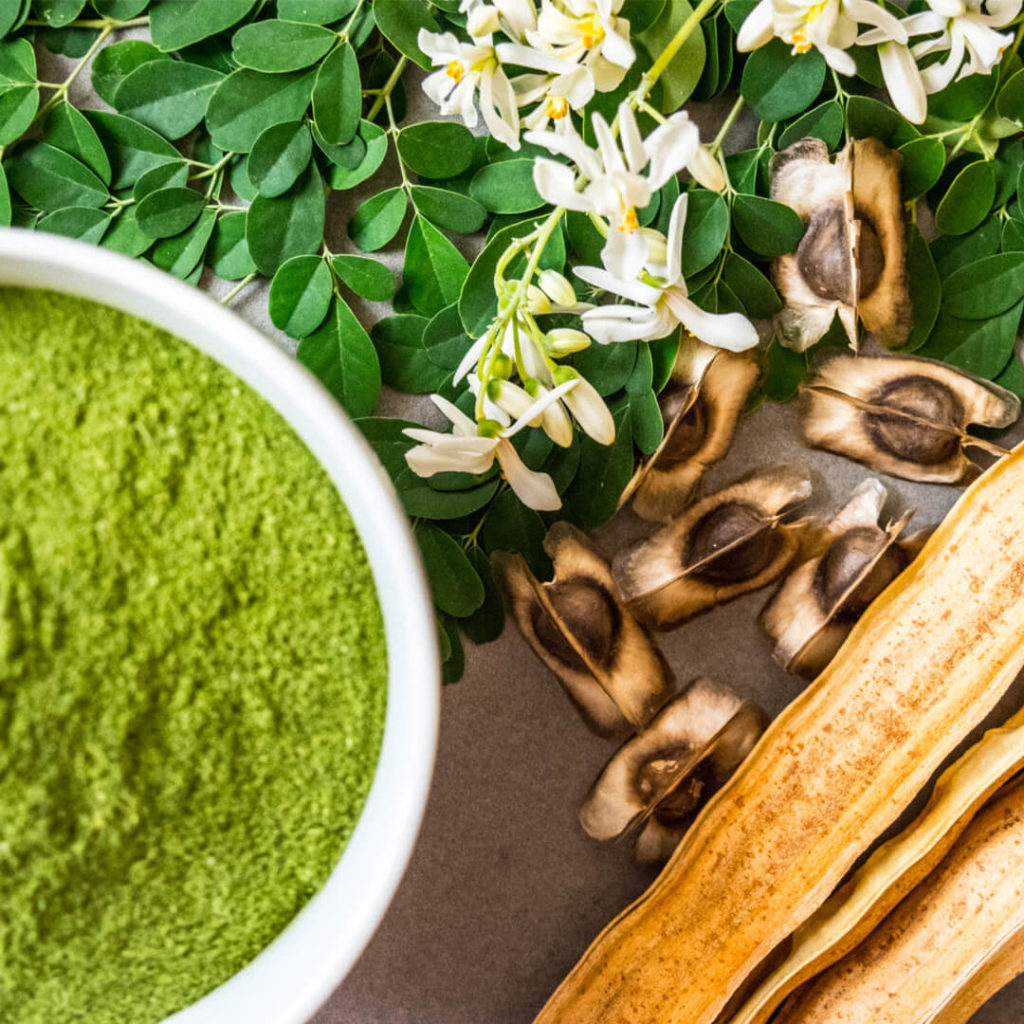
Nutritional Powerhouse
Moringa leaves, the most celebrated part of the Moringa tree, are truly a nutritional powerhouse. They are packed with an impressive array of vitamins, minerals, and bioactive compounds, making them a valuable addition to your diet. Here’s a closer look at the nutritional benefits of Moringa leaves:
- Vitamins: Moringa leaves are an abundant source of essential vitamins. They are particularly rich in vitamin A, which is crucial for healthy vision, skin, and immune function. Additionally, Moringa provides a significant dose of vitamin C, an antioxidant that supports the immune system and helps the body absorb iron.
- Minerals: Calcium, iron, and potassium are minerals found in abundance in Moringa leaves. Calcium is essential for strong bones and teeth, iron helps transport oxygen throughout the body, and potassium is vital for heart health and maintaining proper muscle function.
- Protein: Moringa leaves are a standout source of plant-based protein. What makes them unique is that they contain all nine essential amino acids, making them a complete protein source. This is especially beneficial for individuals following vegetarian or vegan diets.
- Antioxidants: Moringa leaves are brimming with antioxidants, such as quercetin, chlorogenic acid, and beta-carotene. These compounds help protect cells from oxidative stress and reduce the risk of chronic diseases.
- Dietary Fiber: Dietary fiber is crucial for digestive health, and Moringa leaves provide a healthy dose of it. Fiber aids in regular bowel movements and promotes a feeling of fullness, which can assist with weight management.
- Phytochemicals: Moringa contains various phytochemicals, including flavonoids and polyphenols, which have anti-inflammatory and anti-cancer properties. These compounds contribute to Moringa’s overall health-promoting effects.
- Low in Calories: Moringa is a nutrient-dense food, meaning it offers a high concentration of nutrients relative to its calorie content. This makes it an excellent choice for those looking to maintain a healthy weight.
Incorporating Moringa leaves into your diet, whether through salads, smoothies, teas, or supplements, can provide a significant nutritional boost. Its diverse range of vitamins, minerals, and antioxidants not only supports overall health but also bolsters your immune system, boosts energy levels, and promotes healthy skin.
However, it’s essential to consume Moringa in moderation, as excessive intake can lead to digestive discomfort. As with any dietary change, consulting with a healthcare professional or nutritionist is advisable, especially if you have specific health concerns or dietary restrictions. With Moringa’s remarkable nutritional profile, it’s no wonder it’s earning its reputation as a true nutritional powerhouse.
Moringa in History
The story of Moringa extends far into the annals of history, where this remarkable tree has left its mark on various cultures and civilizations. Dating back thousands of years, Moringa has been a valuable and revered resource with a rich historical background.
- Ancient Ayurvedic Texts: Moringa finds mention in ancient Ayurvedic texts, the traditional system of medicine in India. Known as “Shigru,” it was treasured for its therapeutic properties and was used to treat various ailments. The texts praised Moringa for its ability to balance the body’s vital energies.
- Roman and Greek Periods: Moringa made its way to the Roman and Greek civilizations, where it was cultivated and appreciated for its diverse uses. The Romans admired Moringa for its nutritional benefits, while the Greeks valued it as a source of sustenance.
- Traditional African and Asian Medicine: Throughout Africa and Asia, Moringa has been a staple in traditional medicine practices for centuries. In regions where it naturally thrives, such as parts of Africa and the Indian subcontinent, Moringa was employed to address various health concerns, from digestive disorders to skin conditions.
- Ancient Egypt: Historical records also suggest that the ancient Egyptians cultivated and consumed Moringa. It was recognized as a valuable food source and a symbol of health and vitality.
- Worldwide Spread: Over time, Moringa’s reputation for its nutritional and medicinal properties spread worldwide. It became an essential component of diets in many cultures and regions, adapting to local culinary traditions and herbal remedies.
- Modern Rediscovery: While Moringa’s historical use never truly faded, it experienced a resurgence of interest in recent years as global awareness of its nutritional content and health benefits grew. Today, Moringa is celebrated as a superfood, and its accessibility has expanded through various forms, such as Moringa supplements, teas, and powders.
The historical journey of Moringa showcases its enduring significance in human nutrition and well-being. From ancient civilizations to modern health-conscious individuals, the “miracle tree” has consistently played a vital role in promoting health and vitality. Its rich history only adds to its allure as a versatile and nutritious resource that continues to captivate the world today.
Health Benefits of Moringa
Moringa, often referred to as the “miracle tree” for good reason, offers a wide range of health benefits that have made it a sought-after superfood. Incorporating Moringa into your daily routine can lead to improved well-being in several key areas:
- Boosts Energy Levels: Starting your day with a dose of Moringa can provide a natural energy boost. Its combination of vitamins, minerals, and antioxidants helps combat fatigue and increases alertness. Say goodbye to morning grogginess.
- Supports the Immune System: Moringa is a potent ally in supporting your immune system. Its high vitamin C content strengthens your body’s defense mechanisms, making it more resilient against common illnesses.
- Promotes Healthy Skin: Moringa is a skin-loving ingredient. Its antioxidants, along with vitamin E, promote a youthful complexion and combat skin issues like dryness and acne. Regular consumption may leave you with a radiant glow.
- Aids in Digestion: A morning Moringa infusion can aid digestion by soothing the stomach lining and promoting healthy gut flora. It can help alleviate common digestive discomforts and promote regular bowel movements.
- Rich in Antioxidants: Moringa is a treasure trove of antioxidants, including quercetin, chlorogenic acid, and beta-carotene. These compounds combat free radicals in the body, reducing oxidative stress and lowering the risk of chronic diseases.
- Anti-Inflammatory Properties: Chronic inflammation is linked to many health issues. Moringa contains bioactive compounds that possess anti-inflammatory properties, potentially reducing the risk of inflammation-related diseases.
- Heart Health: Moringa may contribute to heart health by reducing cholesterol levels and promoting healthy blood pressure. It supports cardiovascular function, reducing the risk of heart-related ailments.
- Weight Management: If you’re on a weight management journey, Moringa can be a valuable asset. Its ability to boost metabolism and promote a feeling of fullness can aid in weight loss and maintenance.
- Nutrient-Rich: Moringa is often referred to as nature’s multivitamin because of its comprehensive nutrient profile. It contains essential vitamins and minerals that are crucial for overall health and vitality.
- Diabetes Management: Some studies suggest that Moringa may help regulate blood sugar levels, making it potentially beneficial for individuals with diabetes. However, it’s essential to consult with a healthcare professional before making any significant dietary changes.
- Anti-Aging Properties: Thanks to its high content of skin-friendly nutrients, Moringa may slow down the aging process and keep you looking and feeling youthful.
- Improved Cognitive Function: Moringa’s antioxidant and neuroprotective properties may support brain health and improve cognitive function.
Incorporating Moringa into your daily diet can be a simple yet effective way to enhance your overall health and vitality. Whether you choose to enjoy it as a tea, add it to your morning smoothie, or take it in supplement form, the health benefits of Moringa make it a valuable addition to your wellness routine. However, remember that while Moringa offers numerous benefits, moderation is key, and it’s advisable to consult with a healthcare professional if you have specific health concerns or dietary questions.
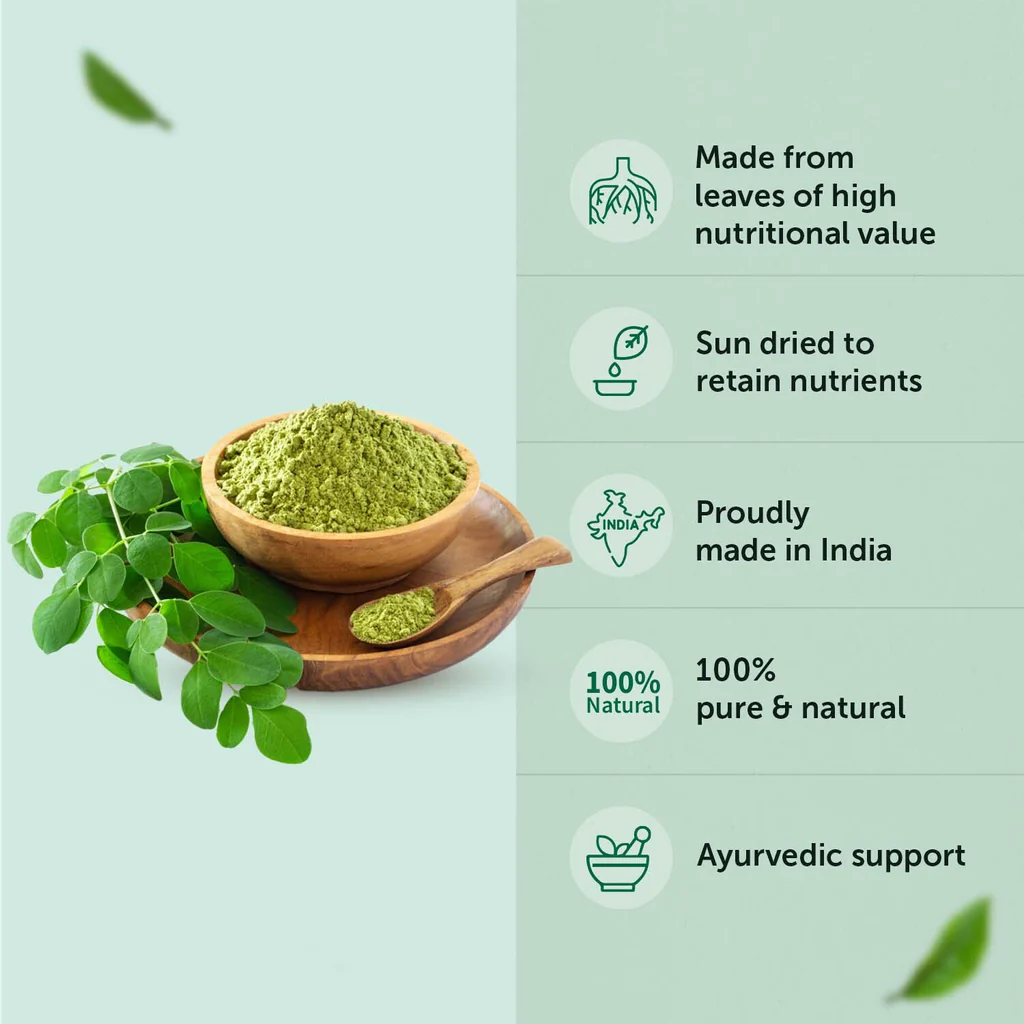
How to Incorporate Moringa Into Your Morning
Incorporating Moringa into your morning routine is not only easy but also enjoyable. This versatile superfood can be seamlessly integrated into various dishes and beverages, allowing you to experience its health benefits right from the start of your day. Here are some creative and nutritious ways to make Moringa a part of your morning ritual:
- Moringa Morning Smoothie:
- Blend together a handful of fresh Moringa leaves (or Moringa powder), a ripe banana, a cup of almond milk (or your preferred milk), and a drizzle of honey or a handful of berries for sweetness. This delightful Moringa smoothie will kickstart your day with a burst of energy and nutrients.
- Moringa Tea: A Healing Elixir:
- Start your day with a soothing cup of Moringa tea. Simply steep Moringa leaves or Moringa tea bags in hot water for a few minutes. You can enhance the flavor and vitamin C content by adding a squeeze of fresh lemon juice. It’s a refreshing and invigorating way to embrace the benefits of Moringa.
- Moringa Breakfast Bowl:
- Elevate your breakfast by sprinkling Moringa powder over your morning bowl of oats, yogurt, or acai. This adds a nutritional punch without altering the taste significantly. Top it off with your favorite fruits, nuts, and seeds for a wholesome and energizing meal.
- Moringa Supplements:
- For those with busy mornings, Moringa supplements are a convenient option. You can take Moringa capsules or powders as part of your daily supplement routine, ensuring you get your Moringa boost without any fuss.
- Moringa for Weight Management:
- If you’re on a weight management journey, consider adding Moringa to your morning routine. Its metabolism-boosting properties can help kickstart your day and promote a feeling of fullness, making it easier to stick to your healthy eating plan.
- Moringa: Nature’s Multivitamin:
- If you prefer simplicity, take advantage of Moringa’s comprehensive nutrient profile by incorporating it into your daily vitamin and mineral intake. It’s like nature’s very own multivitamin, offering a wide range of essential nutrients.
- Cultivating Moringa at Home:
- For those with a green thumb, cultivating a Moringa tree in your garden or on your balcony is an eco-friendly way to ensure a fresh supply of Moringa leaves. Harvest them in the morning for maximum freshness and nutrition.
Remember that Moringa is a nutrient-dense superfood, so a little goes a long way. Start with small amounts, especially if you’re new to it, and gradually increase your intake as needed. Whether you choose to enjoy Moringa in your morning smoothie, tea, or as a supplement, embracing the “Moringa Miracle” in your morning routine can set a positive tone for the rest of your day, providing you with the essential nutrients and energy you need to thrive.
Moringa for Weight Management
If you’re on a journey to manage your weight and improve your overall health, Moringa can be a valuable addition to your daily regimen. This superfood offers several benefits that can aid in your weight management efforts:
- Metabolism Boost: Moringa is known for its ability to boost metabolism, which is the process by which your body converts food into energy. A faster metabolism can help you burn calories more efficiently, making it easier to maintain or lose weight.
- Satiety Promotion: Moringa’s high fiber content can promote a feeling of fullness and reduce appetite. This can be particularly beneficial for those looking to control their calorie intake and avoid overeating.
- Nutrient Density: Moringa is often referred to as “nature’s multivitamin” because of its rich nutrient profile. When you consume Moringa, you’re getting a wide range of essential vitamins and minerals without excess calories, making it a smart choice for those watching their weight.
- Low-Calorie Option: Moringa is a nutrient-dense food, meaning it provides a high concentration of nutrients relative to its calorie content. This makes it a satisfying and healthful addition to your diet without contributing to excessive calorie consumption.
- Energy Enhancement: Weight management often requires increased physical activity. Moringa’s ability to boost energy levels can provide you with the vitality needed for workouts and daily activities.
To incorporate Moringa into your weight management plan, consider these strategies:
- Morning Smoothie: Start your day with a Moringa smoothie by blending Moringa leaves or Moringa powder with fruits, vegetables, and a source of protein like yogurt or protein powder. This satisfying and nutritious breakfast can help you stay full and energized.
- Moringa Tea: Enjoy a cup of Moringa tea before or after meals. The mild, earthy flavor can help curb cravings and reduce the desire to snack excessively.
- Supplements: If you prefer a quick and convenient option, Moringa supplements in the form of capsules or powders are readily available. Follow the recommended dosage guidelines provided on the product packaging.
- Incorporate into Meals: Sprinkle Moringa powder onto salads, soups, or dishes to add a nutritional boost without significantly altering the taste.
- Stay Hydrated: Combine Moringa powder with water, add a squeeze of lemon, and drink it as a hydrating beverage throughout the day. Proper hydration is crucial for supporting weight loss efforts.
It’s essential to remember that while Moringa can be a helpful component of your weight management plan, it should be part of a comprehensive strategy that includes a balanced diet, regular physical activity, and a healthy lifestyle. Consulting with a healthcare professional or nutritionist can provide personalized guidance to help you achieve your weight management goals safely and effectively.
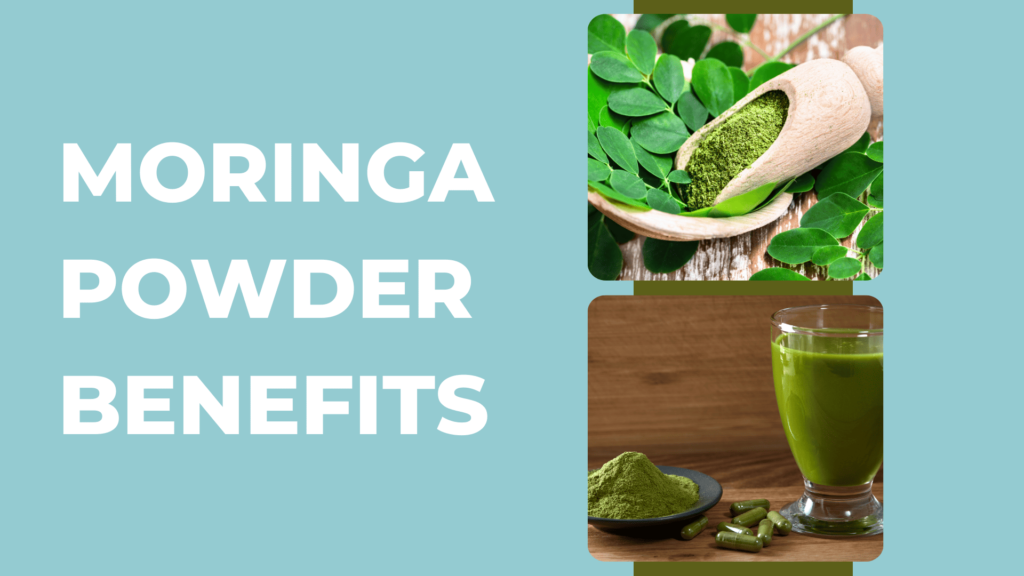
Moringa: Nature’s Multivitamin
Moringa, often referred to as “nature’s multivitamin,” is a botanical treasure trove of essential nutrients that can significantly contribute to your overall well-being. Packed with vitamins, minerals, and bioactive compounds, Moringa offers a comprehensive range of health benefits, making it a standout choice for those seeking a natural and wholesome source of nutrition.
Here’s why Moringa deserves the title of “nature’s multivitamin”:
- Vitamins: Moringa leaves are abundant sources of essential vitamins. They are particularly rich in:
- Vitamin A: Vital for healthy vision, skin, and immune function.
- Vitamin C: An antioxidant that supports the immune system and enhances iron absorption.
- Vitamin E: Known for its skin-loving properties and role in maintaining healthy cells.
- Vitamin K: Essential for blood clotting and bone health.
- Vitamin B Complex: Includes B1 (thiamine), B2 (riboflavin), B3 (niacin), B6 (pyridoxine), and B9 (folate), which collectively support energy metabolism, brain function, and more.
- Minerals: Moringa provides a wealth of essential minerals, including:
- Calcium: Crucial for strong bones and teeth.
- Iron: Essential for oxygen transport in the blood.
- Potassium: Supports heart health and muscle function.
- Magnesium: Involved in hundreds of biochemical reactions in the body.
- Phosphorus: Important for bone and teeth health.
- Complete Protein: Moringa leaves contain all nine essential amino acids, making them a complete protein source. This is especially valuable for vegetarians and vegans seeking diverse protein options.
- Antioxidants: Moringa is brimming with antioxidants, such as quercetin, chlorogenic acid, and beta-carotene. These compounds help combat oxidative stress, reducing the risk of chronic diseases.
- Dietary Fiber: The fiber in Moringa promotes digestive health, regular bowel movements, and a feeling of fullness, which can aid in weight management.
- Phytochemicals: Moringa contains various phytochemicals, including flavonoids and polyphenols, with anti-inflammatory and potentially disease-fighting properties.
- Low-Calorie: Moringa is nutrient-dense, meaning it provides an abundance of nutrients relative to its calorie content. This makes it a smart choice for those looking to maintain a healthy weight.
- Adaptogenic Qualities: Some studies suggest that Moringa may possess adaptogenic properties, helping the body adapt to stress and maintain balance.
Incorporating Moringa into your daily diet is like taking a daily multivitamin supplement directly from nature. Whether you choose to enjoy it in smoothies, teas, or as a seasoning for meals, Moringa can be a convenient and effective way to ensure you’re meeting your daily nutritional needs.
However, it’s essential to remember that while Moringa offers a wide range of benefits, it should complement a balanced diet and healthy lifestyle. Consulting with a healthcare professional or nutritionist can help you determine the best way to incorporate Moringa into your diet to meet your specific nutritional goals and dietary requirements.
Cultivating Moringa at Home
Cultivating Moringa at home can be a rewarding and sustainable way to ensure a fresh supply of this nutritious superfood. Whether you have a garden, a backyard, or even just a balcony, Moringa can thrive in various environments. Here’s a step-by-step guide on how to grow and care for Moringa at home:
1. Obtain Moringa Seeds or Seedlings:
- You can start your Moringa journey by obtaining Moringa seeds or seedlings from a reputable nursery or garden center. Ensure that you’re getting a variety suitable for your climate.
2. Choose the Right Location:
- Moringa trees thrive in warm, sunny climates and can tolerate a range of soil types. Select a location that receives at least 6 hours of direct sunlight each day. If you’re growing Moringa in a pot, choose a large container with good drainage.
3. Planting Moringa Seeds:
- If you’re planting seeds directly in the ground, sow them about 1 inch deep in well-draining soil. Space the seeds at least 6-8 feet apart to allow for adequate growth.
- Water the seeds gently and keep the soil consistently moist until germination, which usually takes around 1-2 weeks.
4. Transplanting Seedlings:
- If you have Moringa seedlings, transplant them into your selected location once they have grown to a height of about 1-2 feet.
- Dig a hole that is twice the size of the root ball and place the seedling in it. Backfill the hole with soil and water thoroughly.
5. Watering and Maintenance:
- Moringa trees are relatively drought-tolerant once established. Water your Moringa regularly during the first few months to help establish a strong root system.
- Prune the tree regularly to encourage branching and create a bushier shape. You can use the pruned branches for consumption.
- Mulch the base of the tree to retain moisture and prevent weeds from competing with the Moringa.
6. Harvesting Moringa Leaves:
- Moringa leaves are typically ready for harvest when the tree reaches a height of 3-4 feet.
- To harvest, simply snip off the leaves and tender stems with clean pruning shears or scissors. Leave some leaves on the tree to ensure continued growth.
- Moringa leaves are best harvested in the morning for maximum freshness and nutrition.
7. Using Moringa Leaves:
- Enjoy your homegrown Moringa leaves in a variety of culinary creations. They can be added to salads, soups, smoothies, or as a nutritious garnish for dishes.
- To preserve the leaves, you can also dry them and store them in an airtight container for future use.
8. Overwintering (Optional):
- If you live in a region with cold winters, consider overwintering your Moringa tree indoors. Trim it back and place it in a sunny location, such as a south-facing window or under grow lights.
Cultivating Moringa at home allows you to have a fresh and sustainable supply of this nutritional powerhouse. With proper care and attention, your Moringa tree can thrive, providing you with a continuous source of nutrient-rich leaves for years to come. Plus, you’ll have the satisfaction of knowing that you’re growing your own superfood right at home.
Side Effects and Precautions
While Moringa is celebrated for its numerous health benefits, it’s essential to be aware of potential side effects and take necessary precautions, especially when consuming it in significant quantities or using it medicinally. Here are some considerations to keep in mind:
1. Digestive Disturbances:
- Consuming large amounts of Moringa, particularly in the form of Moringa powder or supplements, can lead to digestive discomfort, including diarrhea, stomach cramps, and nausea. Start with small quantities and gradually increase to assess your tolerance.
2. Interactions with Medications:
- Moringa may interact with certain medications. If you’re taking medications regularly, especially blood-thinning medications or medications that affect blood sugar levels, consult with a healthcare professional before adding Moringa to your diet.
3. Allergic Reactions:
- Some individuals may be sensitive or allergic to Moringa. If you experience any unusual symptoms after consuming Moringa, such as itching, swelling, or difficulty breathing, discontinue use and seek medical attention.
4. Pregnancy and Breastfeeding:
- Pregnant and breastfeeding women should exercise caution when using Moringa supplements or consuming Moringa in large quantities. While it’s a nutrient-rich food, high doses may not be suitable during these life stages. Consult with a healthcare provider for personalized guidance.
5. Nutrient Overload:
- Moringa is nutrient-dense, and excessive consumption in addition to a balanced diet and supplements can lead to an overload of certain vitamins and minerals. This can have adverse effects on your health, so moderation is key.
6. Contaminated Products:
- Ensure that you source Moringa products from reputable suppliers. Contaminated or poor-quality Moringa products can pose health risks. Look for organic and third-party-tested products when possible.
7. Potential for Hypoglycemia:
- Moringa may lower blood sugar levels. If you have diabetes or are taking medication to regulate blood sugar, monitor your levels closely when incorporating Moringa into your diet, and consult with a healthcare provider if necessary.
8. Specific Health Conditions:
- Individuals with specific health conditions, such as kidney problems, should exercise caution when consuming Moringa, as it contains compounds that may affect kidney function. Consult with a healthcare professional if you have any underlying health concerns.
9. Moderation is Key:
- As with any dietary supplement or superfood, moderation is crucial. While Moringa offers numerous health benefits, excessive consumption may lead to adverse effects. Follow recommended serving sizes and guidelines.
Incorporating Moringa into your diet can be a healthful choice when done mindfully and in moderation. If you have any concerns or pre-existing health conditions, it’s always advisable to consult with a healthcare provider or nutritionist before making significant dietary changes or using Moringa as a supplement. Monitoring your body’s response to Moringa and adjusting your intake accordingly can help you enjoy its benefits while minimizing potential side effects.
Conclusion
The “Moringa Miracle” can indeed be your morning ritual for a healthier, more vibrant life. Its impressive nutritional content and versatile usage make it an ideal choice for those seeking a natural and effective way to boost their well-being.
Now, get ready to embrace the Moringa miracle in your morning routine and experience the positive transformation it can bring to your life.
Source to Get Organic Moringa Leaf Powder Capsules
FAQs
- Is Moringa safe for daily consumption?
- Moringa is generally safe for most people when consumed in moderation. However, it’s advisable to consult with a healthcare professional before making it a daily habit.
- Can Moringa help with weight loss?
- Yes, Moringa can aid in weight management due to its metabolism-boosting and satiety-promoting properties.
- Where can I buy Moringa supplements?
- Moringa supplements are readily available at health food stores, pharmacies, and online retailers.
- Are there any side effects of Moringa?
- Excessive consumption of Moringa may lead to digestive issues. It’s crucial to follow recommended dosage guidelines.
- Can I grow Moringa at home?
- Yes, Moringa can be grown at home, either in your garden or in pots on your balcony. It’s a sustainable way to have a fresh supply on hand.
